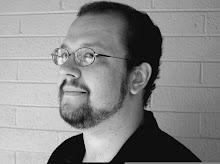"At Pixar when we were making Toy Story, there came a time when we were forced to admit that the story wasn't great. It just wasn't great. We stopped production for five months.... We paid them all to twiddle their thumbs while the team perfected the story into what became Toy Story. And if they hadn't had the courage to stop, there would have never been a Toy Story the way it is, and there probably would have never been a Pixar.I love that Steve Jobs' overriding criterion is whether or not he can "convince [him]self to fall in love" with the work. Not a bad standard to set for yourself.
"We called that the 'story crisis,' and we never expected to have another one. But you know what? There's been one on every film. We don't stop production for five months. We've gotten a little smarter about it. But there always seems to come a moment where it's just not working, and it's so easy to fool yourself - to convince yourself that it is when you know in your heart that it isn't.
"Well, you know what? It's been that way with [almost] every major project at Apple, too.... Take the iPhone. We had a different enclosure design for this iPhone until way too close to the introduction to ever change it. And I came in one Monday morning, I said, 'I just don't love this. I can't convince myself to fall in love with this. And this is the most important product we've ever done.'
"And we pushed the reset button. We went through all of the zillions of models we'd made and ideas we'd had. And we ended up creating what you see here as the iPhone, which is dramatically better. It was hell because we had to go to the team and say, 'All this work you've [done] for the last year, we're going to have to throw it away and start over, and we're going to have to work twice as hard now because we don't have enough time.' And you know what everybody said? 'Sign us up.'
"That happens more than you think, because this is not just engineering and science. There is art, too. Sometimes when you're in the middle of one of these crises, you're not sure you're going to make it to the other end. But we've always made it, and so we have a certain degree of confidence, although sometimes you wonder. I think the key thing is that we're not all terrified at the same time. I mean, we do put our heart and soul into these things."
Sunday, December 14, 2008
Steve Jobs on the creative process and roadblocks
This is from a CNN Money/Fortune Magazine interview. It's really really good. It's also part 10 of a 15-part interview summary-- you should go read the whole thing if you get a moment or 15.
Subscribe to:
Post Comments (Atom)




I have experienced this in my own work. One feels very vulnerable and chagrined, to say the least, at having spent so much time and effort (not to mention the time and effort of others in my case) on something that does not work. Inevitably, the decision to "reset" is a good one. The time and effort are never wasted. Ultimately, one makes more mistakes than not when creating, and that is where the learning happens.
ReplyDelete